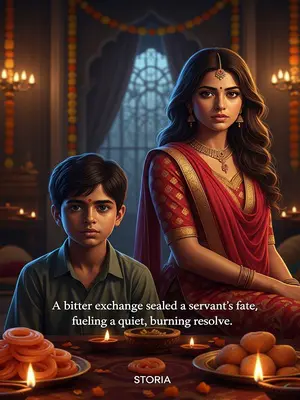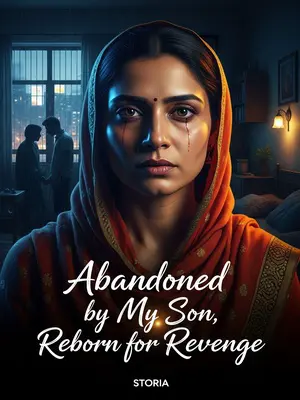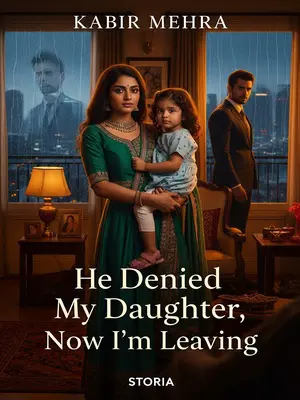Chapter 4: Family Tensions Boil Over
I quickly told Neha: Dubai’s a foreign country, it’s safer to have a man around.
But she just scoffed:
“Afraid my mom will find some old prince there and dump your dad?”
“Ritika, you’re just as scheming as your dad!”
“Let me tell you, if my mom finds an old prince, we’ll just settle in Dubai and leave you two behind, hmph!”
I shut up. Clearly, talking sense wouldn’t work. I’d have to plan carefully.
That night, my dad and stepmother came home one after another.
My stepmother said her back hurt, and my dad rushed to massage her. She said she was hungry, and my dad glared at me, asking if I’d cooked.
It was always like this.
I brought out the food, but my stepmother just sighed.
“We eat this every day. Never see lobster or mutton biryani.”
“My best friend is always showing off her fancy meals. Why is my life so bitter?”
Her best friend had married a 60-year-old retired colonel—old, but with a pension. Yet my stepmother still found a way to brag and compare.
My dad, hearing this, immediately glared and slapped me. “Why didn’t you buy mutton biryani?”
I swallowed my anger and smiled. “I haven’t gotten my salary yet.”
“No salary? Can’t you borrow? Can’t borrow, can’t you get a loan? If your mom starves, I’ll beat you to death! Go buy it!”
He kicked my chair, glaring at me.
The pressure cooker’s whistle cut through the silence like a warning. I wiped my hands on my faded dupatta, stalling for time.
After I went out, I punched the wall in frustration, hatred boiling up inside me.
I only regretted that in my past life, I clung too tightly to family and never thought of resisting. In the end, they just grew more and more shameless.
My phone buzzed—a message from my dad.
“Didn’t mean to hit you. Buy better food. If you can’t get mutton biryani, get paneer tikka. If you don’t have money, borrow from friends. Your mom has to eat well.”
Same old routine—first harsh, then soft.
I sneered, bought some stale paneer, and before going home, threw it hard on the ground, watching it get covered in dust. Only when it was filthy did I feel satisfied, picked it up, dusted it off, and brought it home.
Inside, Neha must have told them about the Dubai prince. My stepmother was thrilled at the thought of a wealthy noble, but my dad looked uneasy. “That place… is it safe?”
Even as I walked back, autos honking and the chaatwala shouting on the street, my hands trembled from anger. I remembered my school days—coming home to my stepmother’s sharp tongue, my father’s silence, the constant ache of being unwanted. Sometimes, the hurt felt like a permanent knot under my ribs. The old house with peeling paint, the flickering tube-light, the TV blaring some melodramatic soap in the background—my world had always been claustrophobic. Only now did I notice how much I was suffocating.











